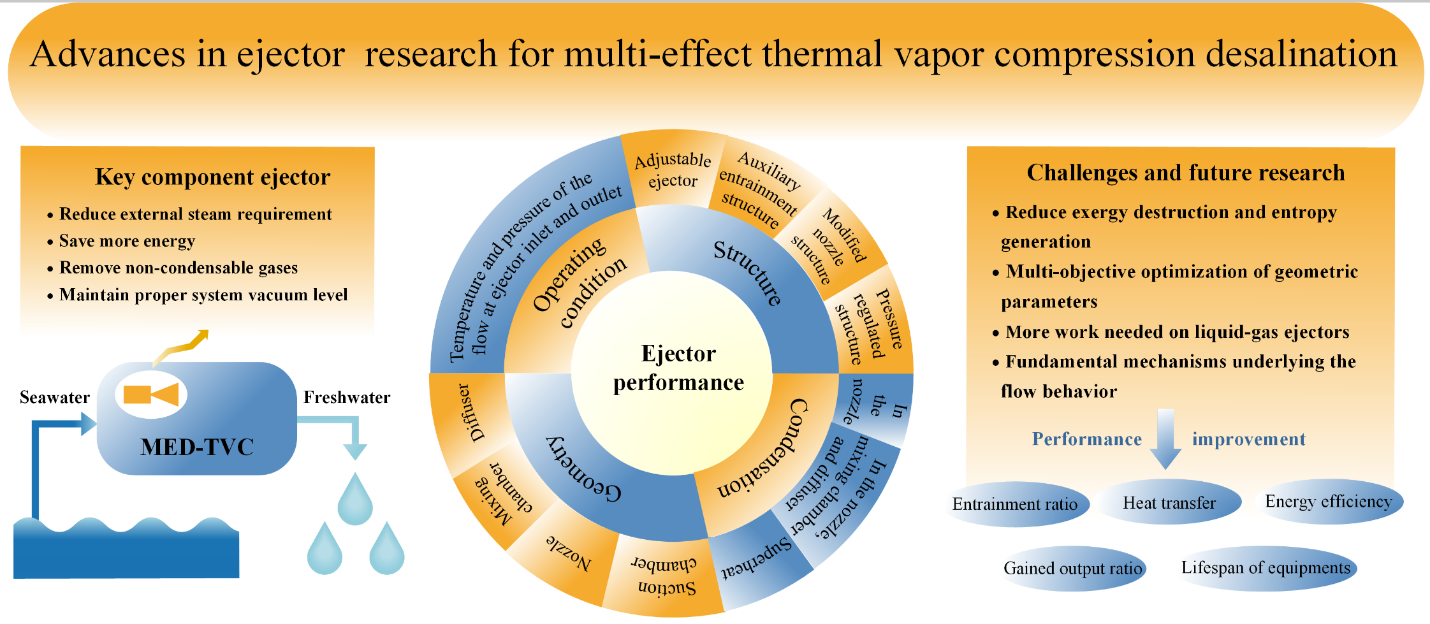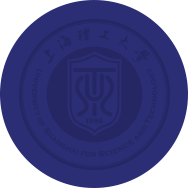Recently, Dr. Dai Zhengshu, a member of the team led by Professor Zhang Hua, worked together with researchers from Zhejiang University and Technical University of Berlin to publish a review paper titled Advances in ejector research for multi-effect thermal vapor compression desalination in Renewable and Sustainable Energy Reviews,IF=16.3. USST was the first unit of the paper, Dr. Dai Zhengshu was the corresponding author, Li Bo and Professor Stefan Elbel, TU, Berlin, were the co-authors.
In the face of global freshwater shortage, energy-efficient desalination technologies are receiving increasing attention. Multi-effect distillation with thermal vapor compression systems is widely used due to its many advantages. In the system, there is one ejector used as a thermal vapor compressor to reuse the steam from the effects, which reduces the overall external steam requirement of the system and the total energy consumption; the other ejector is used to remove the non-condensable gases without additional energy and maintain the system at a proper vacuum level to mitigate corrosion and scaling issues. The performance of such systems strongly depends on the performance of these ejectors. In this work, research on the ejectors used in multi-effect distillation with thermal vapor compression systems is critically reviewed to assess the state of the technology. This review includes ejector working principles, effects of operating conditions, geometry parameters, different structures and condensation phenomenon on the performance of ejectors. Finally, areas of more research needed are identified.



